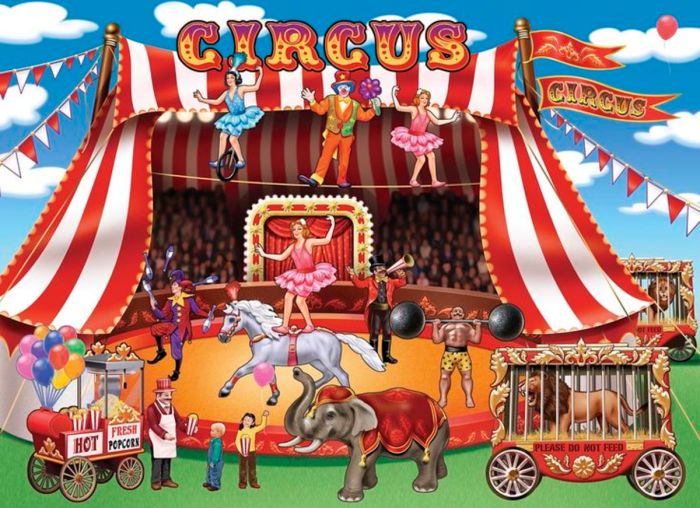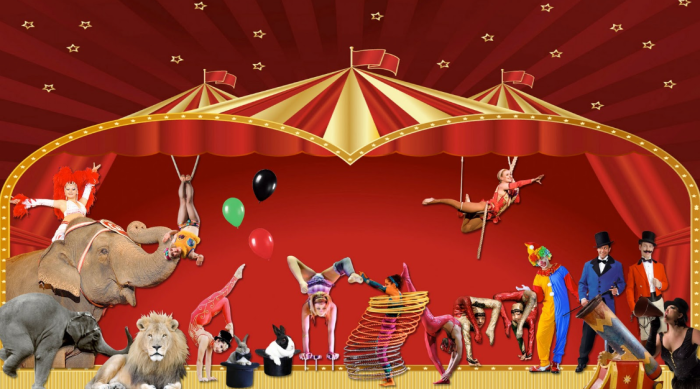Nosotros / no gustar / ir / circo: este concepto explora las razones por las que un colectivo específico puede no disfrutar asistir al circo. Esta discusión examina las causas potenciales, las experiencias personales y los factores culturales y sociales que influyen en esta preferencia, ofreciendo una perspectiva matizada sobre el tema.
A lo largo de este análisis, exploraremos alternativas de entretenimiento que pueden ser más atractivas para este grupo, destacando sus características únicas y beneficios. También analizaremos la evolución del circo y su impacto en las percepciones y preferencias del colectivo.
Reasons why “nosotros” do not like to go to the circus

There are several reasons why the collective group (“nosotros”) may not enjoy attending the circus. Some of the potential reasons include:
- Ethical concerns:Many people have ethical concerns about the treatment of animals in circuses. They may feel that the animals are mistreated or exploited, and that it is wrong to keep them in captivity.
- Lack of interest:Some people simply do not find the circus to be entertaining. They may prefer other forms of entertainment, such as movies, plays, or concerts.
- Crowds:Circuses can be crowded and noisy, which can be overwhelming for some people. They may prefer to spend their time in quieter, more relaxing environments.
- Cost:Circuses can be expensive, especially for families with multiple children. Some people may not be able to afford to attend the circus, or they may not feel that it is worth the cost.
Alternative forms of entertainment for “nosotros”
There are many alternative forms of entertainment that “nosotros” might prefer instead of the circus. Some of these alternatives include:
- Movies:Movies are a popular form of entertainment for people of all ages. They offer a variety of genres and stories, and they can be enjoyed in a comfortable, air-conditioned environment.
- Plays:Plays are another popular form of entertainment. They offer a live, interactive experience that can be very engaging. Plays can be found in a variety of genres, from comedy to drama to tragedy.
- Concerts:Concerts are a great way to see your favorite musicians perform live. They offer a unique, high-energy experience that can be very exciting.
- Museums:Museums are a great place to learn about history, science, and art. They offer a variety of exhibits and programs that can be enjoyed by people of all ages.
- Parks:Parks are a great place to relax, play, and enjoy the outdoors. They offer a variety of activities, such as walking, running, biking, and picnicking.
The impact of personal experiences on “nosotros” and the circus
Personal experiences can have a significant impact on “nosotros” perception of the circus. For example, someone who has had a positive experience at the circus may be more likely to enjoy attending the circus in the future. Conversely, someone who has had a negative experience at the circus may be less likely to want to attend the circus again.
There are many factors that can contribute to a positive or negative experience at the circus. These factors can include the quality of the performance, the behavior of the animals, and the overall atmosphere of the circus.
For example, someone who sees a well-trained animal perform may be impressed by the animal’s skills and intelligence. This could lead to a positive experience at the circus. Conversely, someone who sees an animal being mistreated may be upset and disgusted.
This could lead to a negative experience at the circus.
Cultural and societal factors influencing “nosotros” and the circus

Cultural and societal factors can also influence “nosotros” attitudes towards the circus. For example, in some cultures, the circus is seen as a form of family entertainment. In other cultures, the circus is seen as a form of entertainment for children.
These cultural differences can influence how people view the circus and whether or not they choose to attend.
Societal factors can also influence “nosotros” attitudes towards the circus. For example, in some societies, the circus is seen as a form of low-brow entertainment. In other societies, the circus is seen as a form of high-brow entertainment. These societal differences can influence how people view the circus and whether or not they choose to attend.
The evolution of the circus and its impact on “nosotros”: Nosotros / No Gustar / Ir / Circo
The circus has evolved over time. In the past, the circus was a traveling show that featured a variety of acts, such as acrobats, clowns, and animal performers. Today, the circus is more likely to be a permanent fixture in a city or town.
The acts that are featured in the circus have also changed over time. Today, the circus is more likely to feature high-tech special effects and elaborate stage shows.
The evolution of the circus has had a significant impact on “nosotros” perception of the circus. In the past, the circus was seen as a form of low-brow entertainment. Today, the circus is seen as a form of high-brow entertainment.
This change in perception is due in part to the changes that have been made to the circus over time.
Question Bank
¿Cuáles son las principales razones por las que “nosotros” no disfrutamos ir al circo?
Las razones pueden incluir preocupaciones éticas sobre el bienestar animal, falta de interés en las actuaciones tradicionales, experiencias negativas previas o preferencias por otras formas de entretenimiento.
¿Qué alternativas de entretenimiento pueden ser más atractivas para “nosotros”?
Alternativas como espectáculos de teatro, conciertos, museos, parques temáticos o actividades al aire libre pueden ofrecer experiencias más alineadas con los intereses y valores del colectivo.
¿Cómo han influido las experiencias personales en las percepciones de “nosotros” sobre el circo?
Experiencias positivas, como recuerdos agradables de la infancia, pueden generar una visión favorable del circo, mientras que experiencias negativas, como presenciar el maltrato animal, pueden crear una aversión.